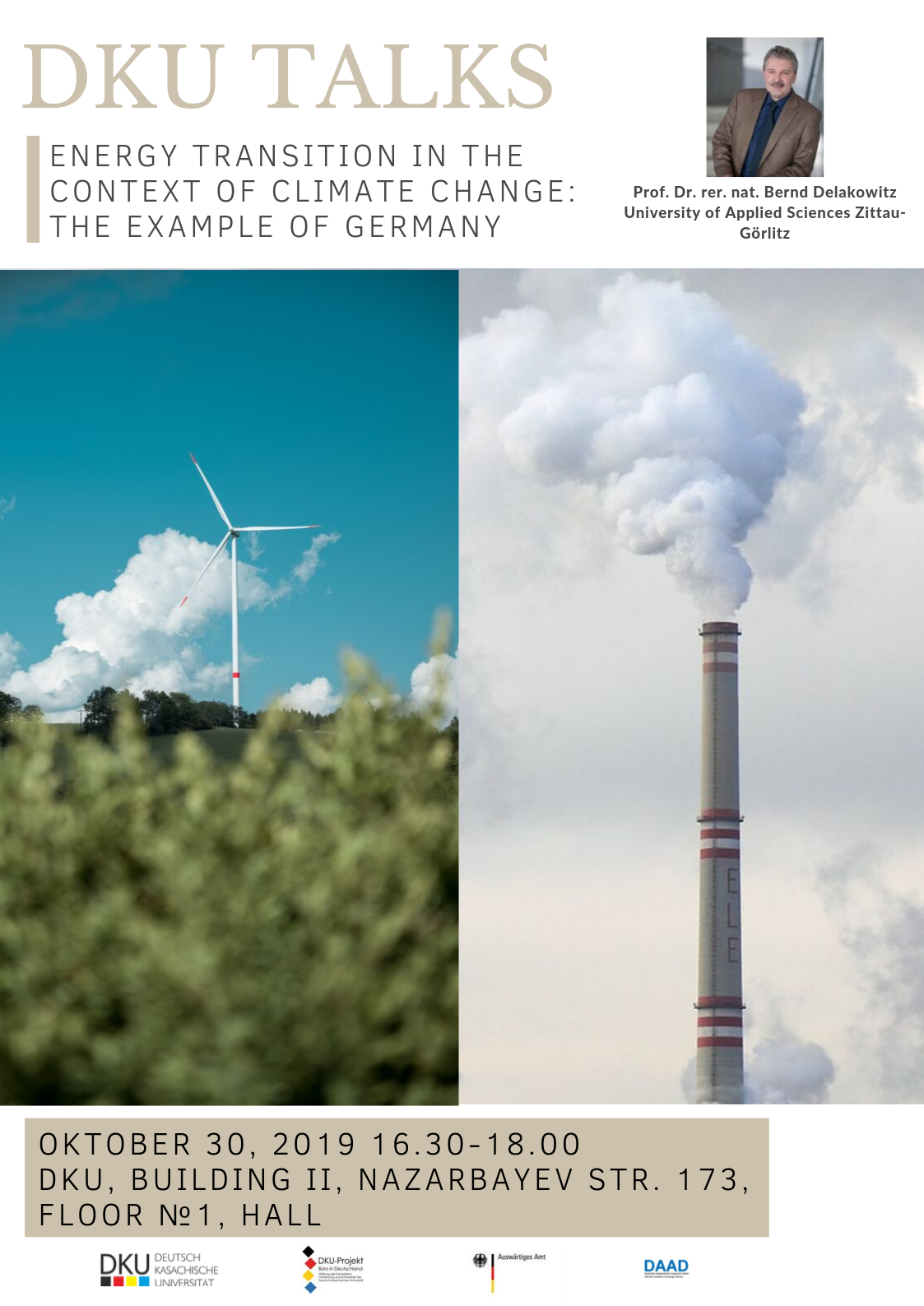DKU Talks «Energy Transition in the Context of Climate Change: The Example of Germany»
The Kazakh-German University is pleased to invite all to the next DKU Talks with Prof. Dr. Bernd Delakowitz on the topic «Energy Transition in the Context of Climate Change: The Example of Germany».
Dr. Delakowitz has been dealing with the topic of climate change for years. He obtained his PhD at the Ludwig-Maximilians-University in Munich. From October 1996, he was a full professor at the University of Applied Sciences Zittau-Görlitz and until February 2019 was the chair of the Department for Life Cycle Assessment, Environmental Law and Operational Environmental Management. From 2000 to 2015, he was also Dean of the Faculty of Mathematics and Natural Sciences and Director of the Institute of Ecology and Environmental Protection. Furthermore, Prof. Delakowitz led numerous research projects in the field of environmental protection with a focus on the areas of global climate change, renewable energies and energy efficiency. Professor Delakowitz holds regularly lectures at numerous international institutions and universities, including in England, Sweden, Poland, Lithuania, Mexico, Russia, Kazakhstan and the United States.
Summary
Germany decided in 2011 to refuse from nuclear energy
In 2018, the share of net electricity production from fossil fuels (coal and lignite, gas, oil) was about 46% and that of nuclear energy about 13%. The proportion of electricity generated from renewable energy sources (wind, solar, biomass, hydropower) was just over 40%.
In this way base load electric power, i.e. electricity which is recoverable at any time, was about 59%. If this share gradually falls away as part of Germany's energy transition, the supply of electricity to industry and private households must be ensured through a combination of significantly improved energy efficiency, intelligent («smart») distribution and consumption models and, in particular, innovative storage technologies.
This lecture aims to reveal the reasons and necessity for the energy transition against the background of global climate change. Afterwards, the state of implementation will be presented and scenarios for the substitution of fossil energy sources as well as related social, political and technological challenges will be discussed.
The presentation will be in English.
Date: Oktober 30, 2019
Time: 16.30 — 18.00
Location: DKU, Building II, Nazarbayev ave., 173, 1st floor, hall
Entrance: free

If you have any questions, please contact the project assistant:
Aisulu Beken
beken.aisulu@dku.kz
Tel.: 355−05−51 (ext. *233)
Mob.: +7 707 625 42 55